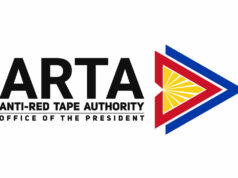
THE Employers Confederation of the Philippines (ECoP) said the recently signed Expanded Maternity Leave (EML) Act will not be beneficial to most women in the work force.
In a phone interview with BusinessWorld, ECoP President Sergio R. Ortiz-Luis, Jr. said the EML law is well-intentioned, but it won’t help a majority of the 43 million people in the work force, most of them in the informal sector.
“The informal sector drives 86% of the labor force,” he said, adding that this sector expands every year, making the EML inaccessible for many mothers.
Mr. Ortiz-Luis also objected to the EML Law’s requirement for employers to absorb the differential in between Social Security Service (SSS) cash benefits by the covered mothers. In a position paper dated Feb. 8, ECoP said this provision will adversely affect micro, small, and medium enterprises (MSMEs).
“These enterprises normally operate and sustain their business on a day-to-day basis. To impose an additional increase in the cost of doing business is way beyond the capacity of the MSMEs,” ECoP said.
Last week, the SSS President and Chief Executive Officer Emmanuel F. Dooc said the law will cost P7.5 billion to implement and contributions will need to be raised.
Section 10 of the EML Law also states that women in the informal economy are covered by maternity benefits if they have remitted to the SSS at least three monthly contributions. Non-members will be covered under benefits provided by the Philippine Health Insurance Corp. (PhilHealth) Circular No. 022-2014 or the “Social Health Insurance Coverage and Benefits for Women About to Give Birth.”
ECoP said it does not object to the 105 days’ maternity leave under the law, which it said is in line with the International Labor Organization (ILO) Convention No. 183 which calls for maternity leave of not less than 14 weeks or 100 days. — Gillian M. Cortez



